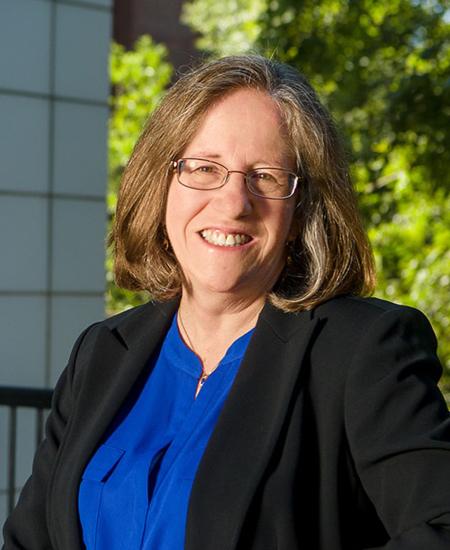Dr. Suzanne Weaver Smith began her career in 1980 working in aeronautics and space R&D at Harris Corporation with launch vibration modeling and testing of the Fine Guidance Electronics of the Hubble Space Telescope. There she also led integration and cross-country mobility testing of the ground communications systems of one of the first U.S. DoD unmanned aircraft system (UAS). Her PhD (Virginia Tech, 1988) focused on vibration-based damage location for the International Space Station using sparse sensing. Dr. Smith joined the University of Kentucky (UK) faculty in 1990 and is an award-winning researcher and educator. She also developed supplemental modules for NASA’s course in Space Systems Engineering.
Dr. Smith served as lead advisor on the early 2000’s NASA BIG BLUE Mars Airplane project to demonstrate feasibility of deployable wings for UAS extraterrestrial exploration. The project provided systems-based, experiential education to over 300 university students, placing more than 50 in the aerospace workforce. Technical developments of the UK Mars Airplane program have been applied to DoD programs including rapid-response, high-altitude, long-endurance deployable surveillance aircraft and a testbed for integrated situational awareness. In 2013, Dr. Smith founded the Unmanned Systems Research Consortium at UK which brings together research faculty from engineering, transportation, computer science and agriculture with industry to advance unmanned systems technologies.
She was the UK lead for an NSF multi-university multi-disciplinary research program, Collaboration Leading Operational UAS Development for Meteorology and Atmospheric Physics (CLOUD-MAP), integrating efforts of engineering and science researchers, graduate and undergraduate students. The 2016-2019 CLOUD-MAP, 2017 Total Eclipse, and 2018 LAPSE-RATE flight campaigns provided ground-breaking operational, scientific and technology results for UAS sensing of atmospheric physics and weather forecasting. Currently she is leading implementation tasks in a NASA University Leads initiative (ULI) center, Weather Intelligent Network Data for Meteorology and Aviation Planning (WINDMAP), and for an FAA project, Frequent in situ Observations above Ground for Modeling and Advanced Prediction of fog (FOGMAP).
A research theme running throughout Dr. Smith’s career is working in interdisciplinary teams developing, evaluating and applying unique systems to answer heretofore inaccessible research questions. Now EduceLab is a culmination of Dr. Smith’s interests and experience combining undergraduate courses toward a history minor with decades of autonomous aerial systems programs in the EduceLab MOBILE cluster.
Over 30 years at UK, Dr. Smith has successfully led grants exceeding $25M including single- and multi-investigator studies, multi-year projects with industry partners, and educational support for students. Her research portfolio illustrates her abilities to translate innovative results to valued industrial applications and economic benefit. Dr. Smith is also Emeritus Director of the NASA Kentucky Space Grant and EPSCoR Programs that provide start-up research support for early-career faculty and fellowships to students across Kentucky, advancing the state’s aerospace workforce pipeline. Her accomplishments and impact led to recognition as a National Science Foundation Young Investigator, college and university awards for exceptional education and service, induction into the 2019 Kentucky Aviation Hall of Fame, and selection as a 2020 Fellow of the American Institute of Aeronautics and Astronautics (AIAA).
Her husband, Bill, is a Kentucky native and University of Kentucky graduate. He is a professor in the UK Department of Electrical and Computer Engineering. They have one daughter, Virginia, who is a PhD student in Aerospace Engineering at Virginia Tech.

